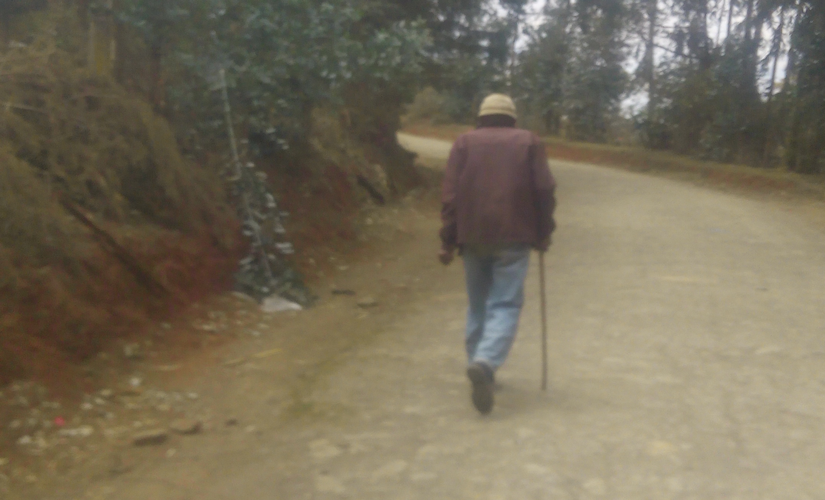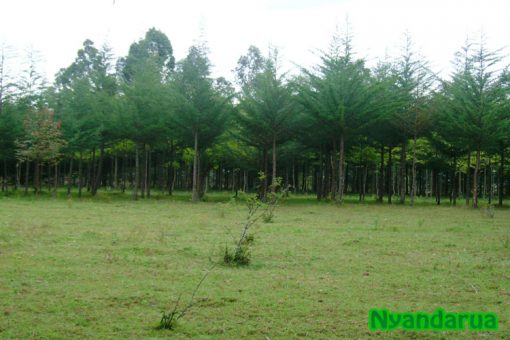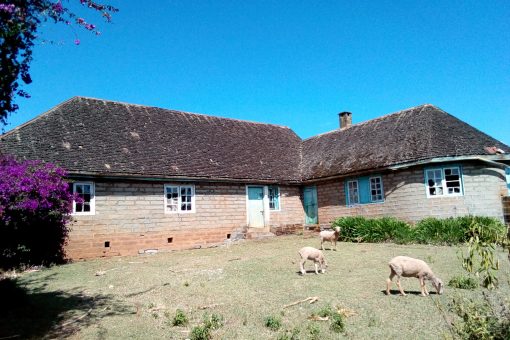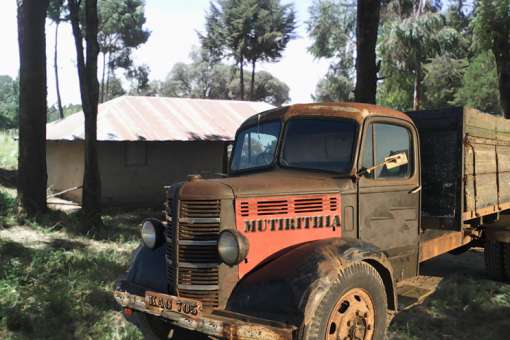There are plenty of books written on the subject of MauMau and I encourage everybody to find at least one or two and read for yourselves. Below, I have some excerpts from one book that I read and found very enlightening. It is titled: Mau Mau – an African crucible by Robert B. Edgerton.
Chapter Title: Their Fierce Self-Interest” Pages 245 – 246: Once a State of Emergency was declared, life became even more perilous. In addition to the danger from armed rebels or the loyalist Home Guards, all Kikuyu were now suspect in the eyes of armed white settlers, police, and soldiers. A man could be shot on sight, a woman raped, a house burned, all without apparent reason or warning. If a man or woman were picked up as a suspect, the danger was so terrible that many prisoners were too frightened to speak. Some would be released, but many would be tortured, some killed, and others sent to prisons or detention camps. Everyone, even those who remained uncommitted to either side, lived in perpetual fear of sounds in the night. No one, not even children, could be sure that they would not be attacked by rebels, Home Guards, the Kenya Police, or armed white settlers because someone regarded them as an enemy, or mistook them for one. For these Africans, the fear of sudden death became an inescapable part of daily life.
The threat of sudden violence was only one of the ever present horrors of life. Many worried about loved ones in the forests or in detention camps. While they waited for news of their sons or fathers or sisters, they were forced to build roads, dig ditches, construct new villages, and endure the spread of hunger and disease.
Chapter Title: “Dark and Dreadful Distortions of the Human Spirit” Page 152 – 153
It was not just the young men in the Kenya Police or the Kenya Regiment who tortured and killed indiscriminately; some of their fathers were determined to be as “tough” in the fight against MauMau as their sons were. A rough and ready Australian who was in Kenya throughout the Emergency, was horrified by his experiences with one of these men.
“I was staying with old Bill one weekend on his farm near T-Falls (Thomson’s Falls) when we got a call that some Mickeys was attacking a farm nearby. Now Bill was at least 60 but he was up before I was, strapping on his pistol and grabbing both a shotgun and a great bloody elephant rifle. He tossed the rifle to me but I said “No thanks, cobber, I’ll stick with my colt .45.” We was joined by two of Bill’s mates in another Land Rover and just about dawn we seen two Africans crossing the road ahead. Bill fired a shot across their bow and they put their hands up. I tried to tell Bill that those lads, hardly more than boys they was, didn’t look like Mickeys to me but he says, “The’re Kyukes and that’s enough for me.” Well he roughs them up some but they say they don’t know where the gang of Mickey’s went to, so he gets some rope and ties one to the rear bumper of his Land Rover by his ankles. He drives off a little ways, not too fast you know, and the poor black bastard is trying to keep from plowing the road with his nose. The other cobbers are laughing and saying, “put it in high gear Bill” and such as that, but Bill gets out and says, “Last chance, Nugu (baboon), where’s the gang?” The African boy keeps saying he’s not Mau Mau, but Bill takes off like a bat out of hell. When he comes back, the nigger wasn’s much more than pulp. He didn’t have any face left at all. So Bill and his mates tie the other one to the bumper and ask him the same question. He’s begging them to let him go but old Bill takes off again and after a while he comes back with another dead Mickey. They just left the two of them there in the road.
We drove around after that but never did find the gang and by then there was police all over the place, so we went back to T-Falls for lunch. Bill ordered beers all around. I was feeling a little shaky but I drank my beer. The other blokes was laughing and feeling fine as near as I could tell. Bill says, “How do you think one of those Mickeys would’ve looked if I’d had him stuffed and mounted?” One of his mates says, “Hell, he was better lookin’ afterwards.” They had a good laugh over that. I spent the war with Wingate in Burma and I met some rough cobbers but I never seen men as cold as Bill and his mates was.
Chapter Title: Their Fierce Self-Interest” Pages 248 – 249: Ironically, most of the men and women who actively supported the movement gained nothing from it, while even before the Emergency ended, the Kikuyu loyalists and other tribes that opposed Mau Mau improved their land-holdings and many acquired new acreage. It is true that the lands of the white settlers were eventually sold to Africans, but only a handful of Mau Mau veterans had the money to afford this new property. In fact, most of those who had owned land before the rebellion began had their land and livestock confiscated, never to be returned. With a very few exceptions, former Mau Mau rebels were also not able to find jobs in government or in business. Loyalists retained the government jobs they held before the rebellion began and when new positions became available, they were filled by the educated children of loyalists, not by uneducated rebels. Indians still dominated retail business, and former Mau mau were not even allowed to serve in the army or police. Instead, virtually all of the Africans in the K.A.R. and the Kenya Police were retained by Kenyatta’s government. These were the same men who had killed and tortured Mau Mau suspects. A rebellion by poor Africans forced Britain to withdraw from Kenya, but the land they had hoped to share and the government they had hoped to lead was taken over by wealthy and educated Africans who had either not fought at all, or had fought against the rebellion. There was no revolution in Kenya as a result of Mau Mau, only the replacement of elite white rulers by another elite, this time black.
In Kenya today, Mau Mau is a fading memory, little taught in schools, seldom discussed by intellectuals, uncelebrated by monuments, holidays, or songs. Yet no one can be certain what Mau Mau’s legacy may eventually prove to be. It may continue to recede into Kenya’s past as a regrettable prelude to the nations independence. End of book excerpts.
This is my clarion call to all the children of the above heroes of independence. Bring your parents heroic stories to life so that their sacrifice will never be forgotten. My parents were just one couple whose story I have shared in these pages, because they shared it with us, their children. I want to read about other heroes and their experiences.
Let our children, the next generation, know the stock from which they were bred. Maybe those real life stories will make our children realize what freedom really means and the price their grandparents paid to secure it, as chronicled above in the brief book excerpts. It is our parents they are talking about in that book. Our children should read such books and then hear the collaborating stories from us, as told to us by our parents, their grandparents, the MauMau. We should bring out every story, of every hero who fought for our country’s independence, saturating every information outlet, making it impossible for our children to ignore them entirely.
The bible in Matthew 5:15 puts it this way: “Neither do people light a lamp and put it under a bowl. Instead they put it on its stand, and it gives light to everyone in the house”. Our parents lit that lamp during their struggle for independence, determined to give us a free nation to inherit. They revisited their painful memories to tell us their stories of that struggle, hoping we would safeguard them and tell them to the future generations.
The question I often ask myself on this subject, and I am now asking you is this: Have we shared our parents stories adequately as they hoped we would? Have we told our children enough of our parents stories to make them understand what the struggle for independence meant to their grandparents and their very existence on a daily basis? I always feel like we have fallen short. We all need to understand that had our parents not fought for independence and drove those hateful colonial racists out of our country, Bill and his friends would still be owning Nyandarua, keeping us under their oppressive power and tying us to their Land Rover like they did those two innocent young men, just a few decades ago, dragging them to their death, in their own country. That’s a fact.
I feel like the stories that were told by the famous freedom fighters who had a national platform as cabinet ministers and government officials, made us feel like our parents stories were somehow represented by those visible prominent figures. We therefore felt like what was already out there was enough. No. Its not enough, especially now when our parent’s generation is slowly fading into the sunset.
Please let us bring their stories to light before it is too late. Shall we?




